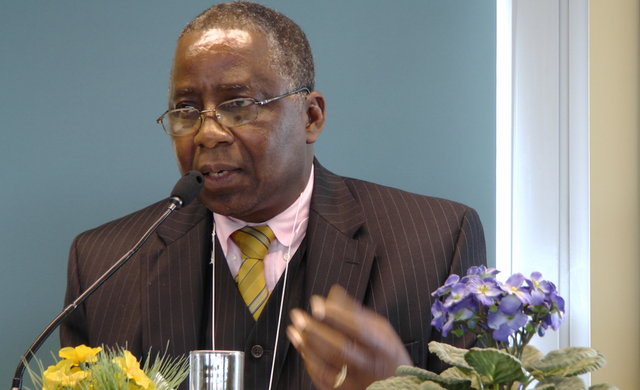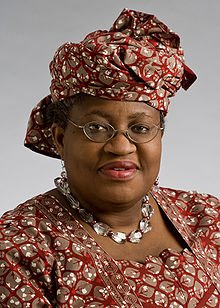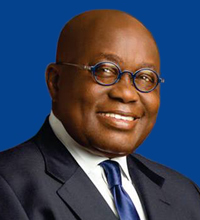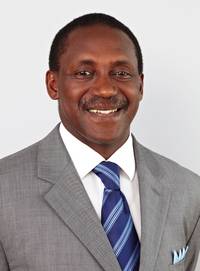“Africa should not withdraw from the ICC but rather amend the statute to review the parameters under which referrals and deferrals may be made and to specifically make selective, discriminatory prosecutions targeting one region of the world never ever occur again occur”
 I am a counsel at the ICC in the situation in the Republic of Kenya. My position criticizing the intervention of the ICC in some situations in Africa has not changed. However, on no occasion have I taken a stand on the decision of the Republic of Kenya to pull out from the ICC although it is permitted under the statute of the ICC and international law where the consent of state parties is the fundamental basis on which jurisdiction is based. That is not within the scope of my mandate. Only the contrary, I have argued that the ICC is a brain child of Africa and that African countries should domesticate the Rome Treaty to use the complementarity provision ( art.17) of the statute of the ICC to insulate themselves from unwarranted selective targeting.
I am a counsel at the ICC in the situation in the Republic of Kenya. My position criticizing the intervention of the ICC in some situations in Africa has not changed. However, on no occasion have I taken a stand on the decision of the Republic of Kenya to pull out from the ICC although it is permitted under the statute of the ICC and international law where the consent of state parties is the fundamental basis on which jurisdiction is based. That is not within the scope of my mandate. Only the contrary, I have argued that the ICC is a brain child of Africa and that African countries should domesticate the Rome Treaty to use the complementarity provision ( art.17) of the statute of the ICC to insulate themselves from unwarranted selective targeting.
I have as recently as this week told a Danish News Channel that the woes of the ICC might be due to the fact that members or not, some supper powers control and influence prosecutorial decision making through the Security Council which is a political organ of the UN or through their direct or indirect involvement in many of the conflicts as their geo-political and economic interests dictate. And that the existence of the ICC which is not an organ of the UN but a treaty based institution, does not prevent the Security Council or regional bodies from establishing other organs with criminal jurisdiction sharing the fight against impunity with the ICC.
I pointed out the clamour by the DRC for the UN to establish an ad hoc mix Special Court to handle crimes that fall within the jurisdiction of the ICC even though it had invited the ICC to intervene with limited results to account for that intervention. I also cited the case of Burundi in the same regard. A special court may be more effective in investigating widespread crimes perpetrated in the DRC because the ICC is timid in going after some leaders within the region who are protected by the very powers pushing the Kenyan agenda.
Lest we forget, I have pointed out on occasion based on practical experience that international law is politics and that in making a determination about whom to prosecute and whom not, the Prosecutor exercises a discretion based on policy considerations and not necessary the law and justice of each case. Apart from contributions from state parties, donations from a myriad of sources, there is the problem of state co-operation and of course the ever present shadow of some super powers may influence prosecutorial decisions. Geo-strategic power play and economic interests, started by the giant from the East ( China) and the economic choices that may compromise geo-strategic interest built colonial and neo-colonial advantage gained over the years may entail an interest in the choice of who leads particular countries.
With the crumbling of the idea of national sovereignty as we knew it in the third world and some European and East European countries, in particular Africa, the temptation to use the ICC process as an additional instrument in support of humanitarian interventionism although wise called Responsibility to Protect Mandate is real. This is why I have argued the Prosecutor is on assault from all sides. And indeed, I sympathize with her position. You will therefore understand why despite her claims that she is in Kenya to protect the interest of victims and fight impunity, almost 200 victims pulled out of the process on the grounds that the perpetrators of the crimes on the basis of which they are victims are not before the court.
The possibility of outside interference in the exercise of prosecutorial decisions at the ICC was recently suggested by the Presiding Judge in one of the two Kenyan cases when he chided the Prosecutor for changing a position she had taken in court briefs concerning hearing parts of the case in Arusha Tanzania and Kenya less than 24hours to arguments in the plenary. Some of the arguments I made in criticizing the prosecutor stem from the fact that the prosecutor relied mainly on reports submitted by partisan civil society groups financed from foreign countries with neo-colonial interests to lay her case. Mathieu Ndjogolo was acquitted among other reasons among them shoddy investigations based on propaganda civil society and intermediaries' reports and because 5 witnesses who have been under her custody took the witness stand and made startling allegations of being manipulated to lie. In Lubanga, the Prosecutor was chided repeatedly for relying on intermediaries to built a case of that magnitude. In the situation in Kenya, she repeatedly made baseless allegations of witness tampering.
When we sat down for a marathon investigation that lasted one year, she quickly dropped her investigation only lately; although for the purposes of public relations to prepare the public for a potential collapse of the cases, she continues to press on with the allegations.
The court has three independent sections: The Judges, the Registry and the Prosecutor. I have worked for a period of about 13 years with many of the persons in this process whether on the Bench, Registry or the Prosecutor's Office. The Prosecutor considered my views as candid and invited me among a select group of experts and professionals to submit a position paper on how to make the court more efficient and improve the relations of the court with the AU and Africa countries. I provided an opinion which she deemed substantial and published for wider circulation.
In indeed, I advised that the prosecutor had to refine her communication skills and be culture sensitive when contacting witnesses, victims, accused, and all levers of the African society who have to be trusted with evidence or information that may help advance the process. I have seen a remarkable improvement in that direction. I also provided advice of a professional nature which I need not disclose here. However, it is not uncommon for the prosecutor to reach out to stage holders that we are for such advice.
I traced the journey the world has travelled since the First and Second World Conferences in 1898 and 1907 to establish a standing International Court at the suggestion of the Russian Delegate to the conference and concluded that Africa massively joined because it was at last a chance to send a warning signal for countries and people who may be tempted to repeat the crimes that Africa suffered over the centuries in our age. Is it therefore wrong for me and many others to point out that Africa as a major stake holder has a right to cry out that this institution that was intended to fight not just impunity but the criminal practices laid out in the preamble of the UN Charter the practice of which led to the holocaust is being practiced at the ICC through selective justice?
Some have argued that some Africa countries invited the ICC into their situations, others were referred by the UN and the Kenyan situation was initiated by the Prosecutor proprio motu, and so Africa has no reason to cry out. If you examine the situations case by case, you will find something strange. The referral process has been abused by criminals and dictators using it as an additional weapon to consolidate power.
The case of Central Africa Republic where a "coupist" and criminal Bozozie toppled Ange Patassie, exterminated hundreds of thousands and to consolidate the spoils of criminality, invited the ICC to investigate the late democratically elected president. The SELEKA Rebels knew from thence that the only thing that can insulate them from the ICC is to take power by the barrel of the gun. In Uganda, Museveni invited the ICC to go after the Lords Resistence Army. Rather than do so, the ICC started looking elsewhere and he kicked them out. In Ivory Coast, Sudan and Libya, the Security Council referred the situations to the ICC. The ICC in error hoped to consider this a judicial process but the politicians at the Security Council considered that as an aspect of their regime change mandate disguised under the Responsibility to Protect Mandate.
Once the missions were accomplished it abandoned the ICC to itself, depriving it of funds to accomplish the mandates referred to it by these very powers. The result is that we have victor's justice in the situation in Ivory Coast and in the case of Libya the new regime which was deemed democratic has refused to hand over the indictees despite decisions by the ICC compelling it to do so. The Security Council has remained silent because that regime was brought to power by veto wielding members.
The ICC is stocked in Kenya and the Kenyan situation where the Prosecutor intervened barely two months when the violence broke out. Some of the members of the civil society who helped build this case are now elected officials and have reset their priorities to accommodate the new realities. With the existence of modern technology the Prosecutor would have conducted a simple enquiry of accessing and reading the emails of its potential witness, their phone contacts and communications to verify the dates they purported to be with the accused on the days they alleged, their criminal backgrounds and indeed the media for interviews granted by them etc. He staked his honour in a politicized prosecution. Rather than conduct proper investigations, he made a balancing act based on the political realignment at the time. Once that realignment changed, the fundamental premise on which he built his case started crumbling.
That is some of what I have criticized and there are many out there, who looking at what is ongoing in the Kenyan case will agree with me.
My position which is consistent has been that Africa should not withdraw but rather amend the statute to review the parameters under which referrals and deferrals may be made and to specifically make selective, discriminatory prosecutions targeting one region of the world never ever occur again occur.
The justification for targeting Africa in almost 13 years of its existence is lame. As the Chief Legal Officer of the Court the Prosecutor has a duty to provide an advisory opinion to the Security Council to seriously make a referral of situations in countries like Syria, Sri Lanka, Iraq, etc to the court. The fact that these has not occurred sends wrong signals about the commitment of the Prosecutor to fight impunity everywhere in the world.
{fcomment}



